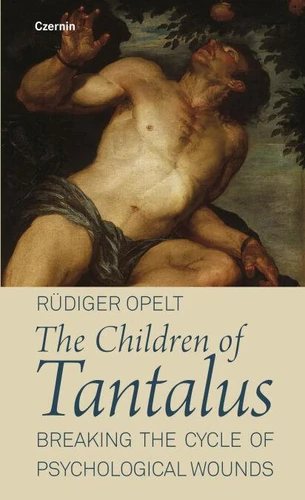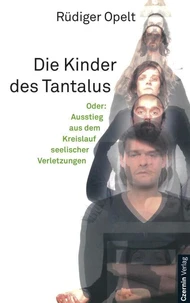The Children of Tantalus. Breaking the cycle of psychological wounds
Par :Formats :
Disponible dans votre compte client Decitre ou Furet du Nord dès validation de votre commande. Le format ePub est :
- Compatible avec une lecture sur My Vivlio (smartphone, tablette, ordinateur)
- Compatible avec une lecture sur liseuses Vivlio
- Pour les liseuses autres que Vivlio, vous devez utiliser le logiciel Adobe Digital Edition. Non compatible avec la lecture sur les liseuses Kindle, Remarkable et Sony
 , qui est-ce ?
, qui est-ce ?Notre partenaire de plateforme de lecture numérique où vous retrouverez l'ensemble de vos ebooks gratuitement
Pour en savoir plus sur nos ebooks, consultez notre aide en ligne ici
- Nombre de pages144
- FormatePub
- ISBN978-3-7076-0538-9
- EAN9783707605389
- Date de parution10/04/2015
- Protection num.Digital Watermarking
- Taille798 Ko
- Infos supplémentairesepub
- ÉditeurA PRECISER
Résumé
Tantalus, a king in ancient Greece, kills his son and is condemned to torture and punishment. All his family are damned to repeat his deed and kill each other, until his great grandson Orestes finds a way out of the endless repetition of violence.
Violence and suffering are inseparably interconnected. That's common sense told by this old myth. To explain mental illness can we not trace suffering back to violence? Yes we can.
In WWII millions of men were slaughtered, tortured, imprisoned or expelled from their home. Even today the children and grandchildren of these victims are haunted by the nightmares of the past, get ill and emotionally disturbed by unprocessed traumatic experiences of their families. This new theory has a revolutionary impact on clinical psychology.
In WWII millions of men were slaughtered, tortured, imprisoned or expelled from their home. Even today the children and grandchildren of these victims are haunted by the nightmares of the past, get ill and emotionally disturbed by unprocessed traumatic experiences of their families. This new theory has a revolutionary impact on clinical psychology.
Tantalus, a king in ancient Greece, kills his son and is condemned to torture and punishment. All his family are damned to repeat his deed and kill each other, until his great grandson Orestes finds a way out of the endless repetition of violence.
Violence and suffering are inseparably interconnected. That's common sense told by this old myth. To explain mental illness can we not trace suffering back to violence? Yes we can.
In WWII millions of men were slaughtered, tortured, imprisoned or expelled from their home. Even today the children and grandchildren of these victims are haunted by the nightmares of the past, get ill and emotionally disturbed by unprocessed traumatic experiences of their families. This new theory has a revolutionary impact on clinical psychology.
In WWII millions of men were slaughtered, tortured, imprisoned or expelled from their home. Even today the children and grandchildren of these victims are haunted by the nightmares of the past, get ill and emotionally disturbed by unprocessed traumatic experiences of their families. This new theory has a revolutionary impact on clinical psychology.




